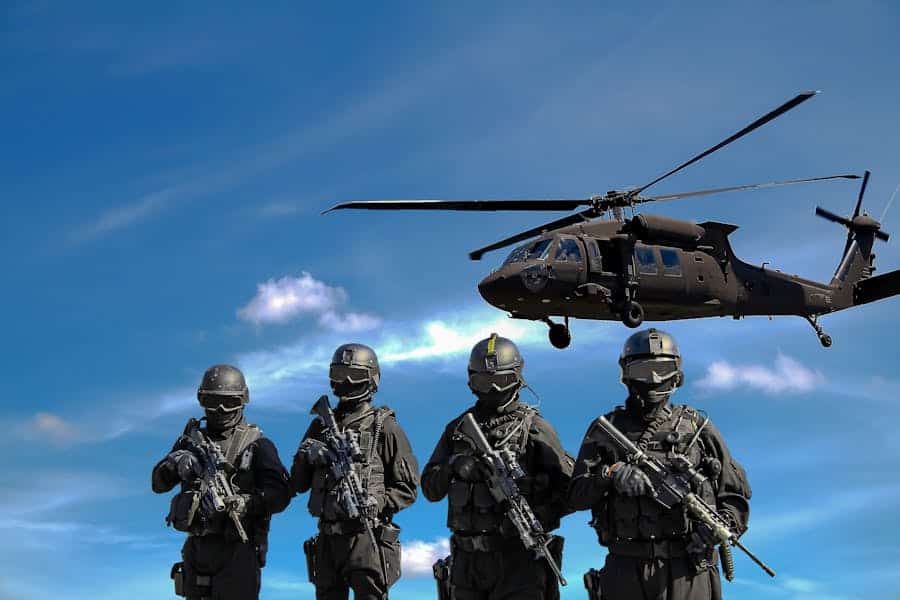
Probably among the most important and intriguing questions about Military Police is what actually places them in a different category compared to regular police. The roles played by both entities are highly critical in protecting law and order, but their jurisdictions, duties, training methods, and settings vary greatly. Their differences must be understood in maintaining appreciation for their distinct functions within their spheres of operation. The article goes through the main elements that differentiate military police from ordinary ones, making a comprehensive comparison that lays down the different roles, authorities, and operational contexts. Whether one is a police enthusiast, a recruitment prospect, or even a civilian just willing to learn more about these forces, it will be quite a valuable source of insight into the world of Military Police VS Police.
Jurisdictional and Authority Differences
Primarily, the roles of Military Police and regular police come as a result of jurisdictional and legal authority differences in the functions. Although both are tasked with maintaining law and order, the scope of operation for these two is very different. Military Police work within the military installations that house military laws and regulations; hence, they deal with military personnel and activities within those specified areas. From military base security to investigating crimes involving military personnel, they handle a wide array of duties.
Conversely, the regular police operates within civilian jurisdictions, such as cities and towns. The regular police derives its authority from a local or national government and is mainly tasked with the enforcement of civilian laws. This involves traffic offenses, response to emergency calls, processing of crime scenes, and ensuring public safety. Their contact is mostly with civilians, and the law they enforce falls under the civil and criminal codes that apply to the members of the public.
The other primary difference is in the scope of their legal authority. The Military Police has powers of arrest over military personnel and enforces military codes of justice, such as the Uniform Code of Military Justice within the United States. In contrast, the regular police enforce local, state, and federal governments’ laws against civilians. Therefore, dramatic differences will most probably lie in the kind of offenses they take up and the procedure they follow.
The training that Military Police receive is also specialized. Besides military skills, they study military law and specialized security procedures. This will help them deal with the issues they face in a uniquely military environment—the possibility of deployment during war. On the other hand, regular police training focuses more on civilian law enforcement techniques, community policing, and handling public safety concerns.
This variation primarily comprises differences in jurisdiction and extent of authority. The two perform a very crucial function in keeping societies orderly and safe, but operational contexts, training, and legal frameworks set it apart. Understanding these distinctions is key to appreciating the unique contributions each makes to their respective spheres.
Training and Skills Development
Military Training Focus
The militia police are given very rigorous training, which borders on both law enforcement and combat skills. Training of this nature would, therefore, better equip them to meet the strong and special challenges of maintaining discipline within military environments, including peacetime as well as combat acts. This comprises weapons handling, military law, physical fitness, and survival skills.
Civilian Law Enforcement Training
Weightfully, regular police officers train on content that is mostly civilian law enforcement. Therefore, this training shall comprise vast coursework in criminal law, traffic laws, investigation techniques, and community policing. Training also includes emergency response, conflict resolution, and public safety.
Specialized Skills
Military Policemen are also trained in specialized skills relevant to the military context. This also comprises investigating or managing cases of military-specific incidents, including breaches of military and security duties on bases and during deployment. In addition, they handle prisoners of war detainees in theatres of conflict, among other capabilities.
Community Engagement
Community policing is also imparted to the regular police force. The community policing strategies are aimed at enabling the officials of the police force to gain the trust and cooperation of citizens of the general public. This portion of training also includes the aspects of communication skills, cultural awareness, and problem-solving techniques that become crucial for saving lives and properties.
Continuing Education
Education and training are, therefore, constantly updated during service by the military police and the regular police. This will help them know new laws, techniques, and technologies that will make them more effective in their duties. Continuous training helps in adapting to the changing security environment and societal needs.
Roles and Responsibilities of Military Police VS Police
- Military Police Responsibilities: Base Security: Military Police (MP) ensure the safety of military installations by monitoring entry and exit points, conducting patrols, and responding to security threats. Their role is critical in protecting sensitive information and equipment within the base.
- Law Enforcement: MPs enforce military laws and regulations, including the Uniform Code of Military Justice (UCMJ). They address offenses committed by military personnel, maintaining discipline and order within the ranks.
- Combat Support: Military Police provide support during combat operations, securing perimeters, managing detainees, and facilitating troop movements. Their presence in conflict areas helps maintain order and discipline among military personnel.
- Investigations: MPs investigate crimes involving military personnel and incidents within military jurisdictions. They gather evidence, interview witnesses, and prepare reports for military courts, ensuring justice and accountability.
- Prisoner Management: Military Police handle detainees and prisoners of war, ensuring their security and managing detention facilities according to international laws and standards. Effective prisoner management maintains order and adheres to legal and ethical standards.
Regular Police Responsibilities
- Public Safety: Regular police are responsible for the safety and security of the public. They patrol neighborhoods, respond to emergency calls, and prevent and investigate crimes, providing a sense of security for residents.
- Law Enforcement: Regular police enforce local, state, and federal laws. They respond to criminal activity reports, make arrests, issue citations, and uphold legal rights, maintaining public order and protecting citizens.
- Traffic Control: Regular police manage traffic and ensure road safety by monitoring traffic flow, enforcing traffic laws, responding to accidents, and conducting sobriety checks. Proper traffic control reduces accidents and ensures transportation systems function smoothly.
- Emergency Response: Regular police are first responders to emergencies, including crimes, accidents, natural disasters, and medical emergencies. Their prompt response can save lives, mitigate damage, and restore order in crisis situations.
- Community Policing: Building relationships with community members is vital for regular police. Officers engage with residents through events, educational programs, and proactive patrols, fostering trust and cooperation between law enforcement and the public.
Warping Up
Military police differ from regular police through differences in jurisdiction, training, legal authority, and daily duties. The military police secure the confines of military installations. In addition, their military laws enforce the military liabilities during combat operations. Contrary to this, the duty of the regular police is towards the civilians of society to enforce most of the local, state, and federal laws, ensuring public safety. Both occupy very vital positions within their spheres and serve the security and general order of society. The differences underline the value that each of those contributions plays in maintaining peace and security.
Frequently Asked Questions
Q. Do Military Police have the same powers as the police?
A. The Military Police retains authority over military personnel and within military bases while police retains authority over civilians within its jurisdictions.
Q. Can Military Police arrest a civilian?
A. Generally, Military Police hold no power to arrest civilians unless in a military installation or under particular circumstances where civilian law enforcement is not present.
Q. What kind of training do Military Policemen undergo?
A. Military Police undergo military training, including combat skills, military law, and security procedures, while regular police only receive training in civilian law enforcement and public safety.








